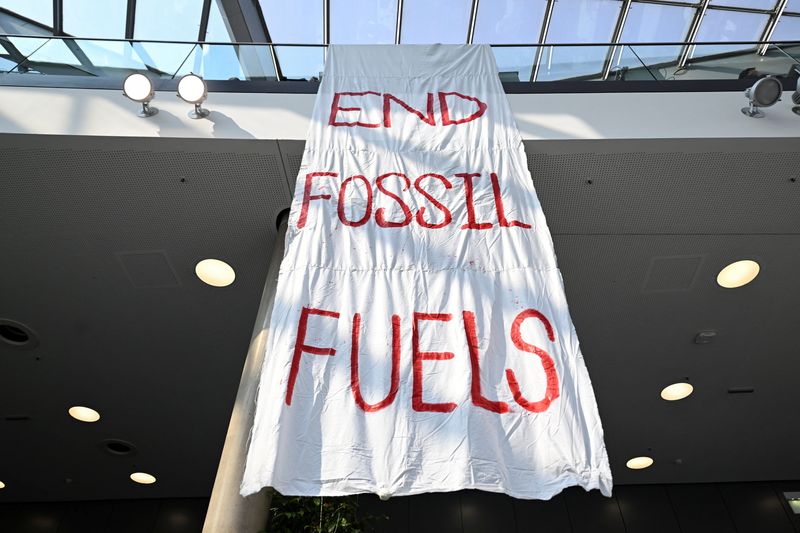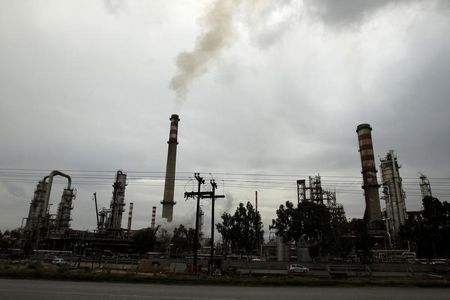By Riham Alkousaa
BERLIN (Reuters) -Environmental groups on Tuesday criticized Germany's draft policy on export credit guarantees as too vague and soft on financing for natural gas projects, as Berlin attempts a balancing act between climate protection and energy security.
Germany supports exports by offering guarantees for non-payment caused by economic and political factors, helping companies to secure political backing for their projects and better financing terms.
On Monday, the economy ministry published its first draft guidelines for such guarantees for the energy, transport and industry sectors, tying them to climate protection targets.
The guidelines set three categories for future projects: a positive green for projects contributing to achieving climate targets that would be eligible for government support, a neutral white for projects that do not make a significant contribution to climate goals but would still receive support, and a climate-damaging red to be excluded from such guarantees.
But the draft drew heavy criticism from environmental organizations, which argued that Germany was breaking its international commitment to ending public financing for fossil fuels by the end of 2022, by offering too many exemptions for natural gas projects.
"These plans highlight the German governments' shameless disrespect of its international commitments and climate goals," Martin Kaiser, executive director of Greenpeace Germany, said.
At the 2021 United Nations COP26 climate summit, 20 countries, including Germany, promised to stop public funding for overseas fossil fuel projects by the end of 2022.
The economy ministry on Tuesday said the sector guidelines implemented international commitments and that conditions for natural gas were very strict and very limited.

The guidelines, expected to come into effect in the fourth quarter of 2023, grant exemptions to new natural gas projects "in special individual cases" until the end of 2025. They need to be deemed necessary for national security and to be compatible with achieving the target of limit global warming to 1.5 degrees Celsius (2.7 Fahrenheit) without lock in effects.
"There's a scientific consensus that there is no extraction of oil and gas extraction anywhere in the world that is compatible with the 1.5 degree C target," Adam McGibbon, Public Finance Strategist at Oil Change International, told Reuters.
